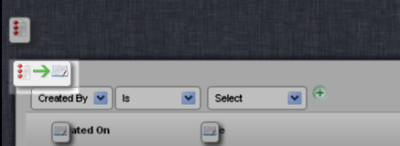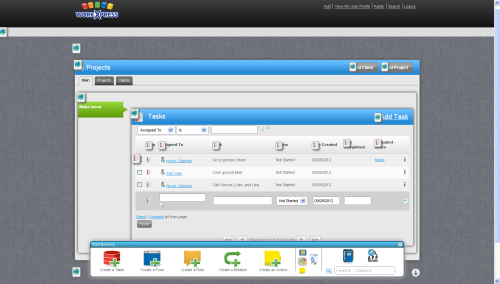- Introduction to WorkXpress
- Building Your Application
- Examples and Best Practices
- Technical Manual
To create a usable application, you'll need to build a robust data model. A data model is a diagram of the people, places, and things you want to track with your software application, what information you want to track about them, and how they are interrelated. In WorkXpress, tables, relationships, and fields comprise the data layer of an application and are the Building Blocks you'll use to realize your data model. This layer is not really used to change anything about your application, but gives you a quick way to see what tables are associated with your your forms and fields.
| To toggle the Database Layer | |
|---|---|
| On the Block Creator, use the toggles for the layers | |
 |  |
| Control Points in the Database Layer These will be the icons your selected for your tables. |
|
|---|---|
| A relationship between two forms is shown by a green arrow between the icons for the tables. |  |
| Page in Development Role | |
|---|---|
| No Layers Displayed | Database Layer Displayed Control points are shown |
 |  |
 Tables are the people, places, and things you want to track.
Tables are the people, places, and things you want to track.
WorkXpress relationships are similar to one to one, one to many and even many to many relationships. You do not need to specify the type of relationship in WorkXpress the way you do in other database tools. In fact, you can even store data on a WorkXpress relationship or connect multiple relationships of the same type to the same two records.
Creating a field and associating it with a table is very similar to adding a column to a table. However, a field in WorkXpress does double duty by serving both the data layer and presentation layer. Further, WorkXpress fields include additional concepts such as field parts. For example, the address field has several parts, including street, city, state, and zip code, which can each be utilized for other functions in the application.
Use the Query Builder tool to query the WorkXpress data layer. You can query tables, go across to related tables, and filter using fields. All manner of branch logic, filtering, and connections is possible empowering a diverse query capability very similar in the power of SQL but without the code.